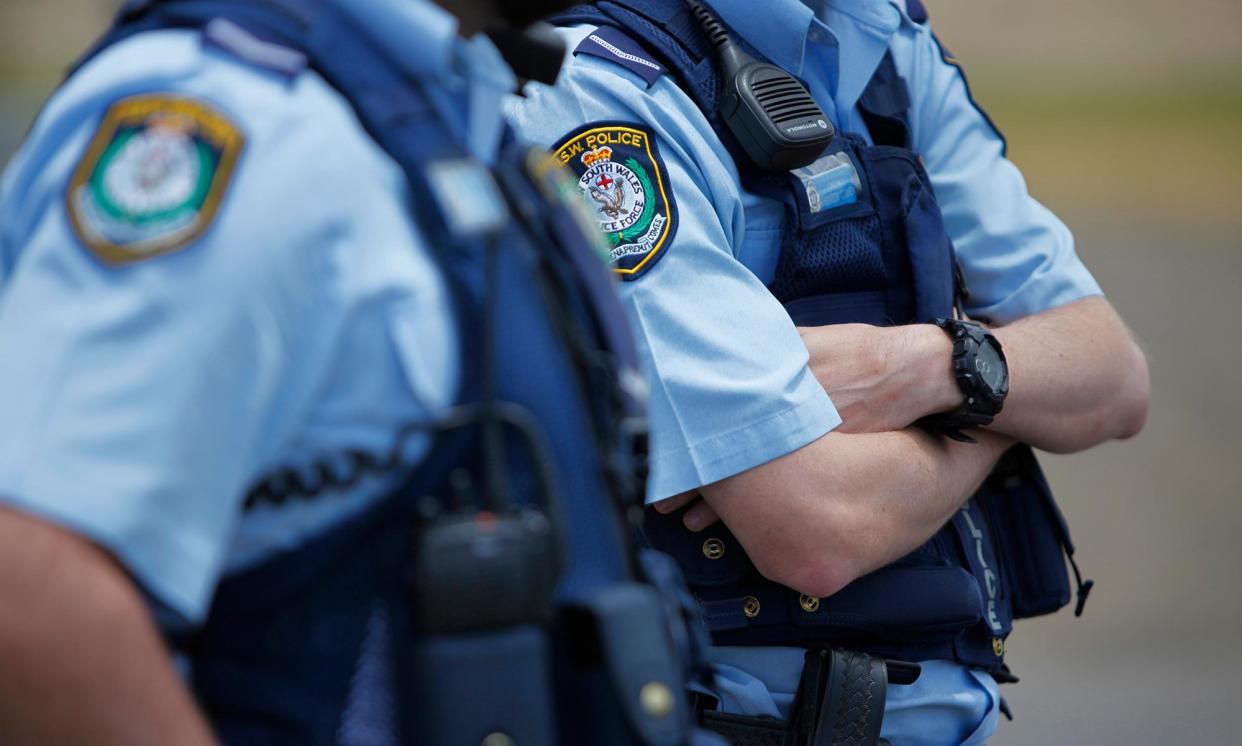NSW police urged to improve mental health training after string of deaths involving vulnerable people

New South Wales police have been urged to improve mandatory mental health training for officers and “explore” becoming the second responders to these types of emergencies after a string of fatalities involving vulnerable people.
A parliamentary inquiry into mental health care across NSW made the recommendations after finding police involvement in mental health crises could cause further distress and had been harmful in a “significant number of cases”.
Published on Tuesday, the committee’s report noted that “recent tragedies” involving police responses had led to “fear and reluctance” for some people experiencing psychological distress to seek emergency care.
Overall, the report said, mental health care in NSW had become “reactive and crisis-driven” because it was “chronically and severely” underfunded and was failing carers, people seeking help and those working in the sector.
The report recommended the NSW government “explore innovative revenue streams” to fund mental health services, however did not go as far as recommending the state implement a levy like Queensland and Victoria to help fund the system.
The NSW government on Tuesday announced an extra $112m for community mental health supports and early intervention programs would be included in the state budget, which will be delivered later this month.
Dr Evelyne Tadros, the Mental Health Coordinating Council’s chief executive officer, said the government should make a “significant separate investment” to respond to the inquiry.
“This doesn’t go anywhere near far enough to address any of the recommendations,” she said. “It feels like business as usual.”
In response to criticism from the sector that the funding was not enough, the premier, Chris Minns, said he understood the concerns but the government was “doing everything we can”.
The inquiry held hearings across the state at a time when the police’s handling of mental health emergencies was under scrutiny after officers fatally wounded or shot four people experiencing mental health crises between May and September last year.
NSW police have attended 94,946 mental health incidents since 2019 and the number has increased every year. Guardian Australia previously revealed that 52 people experiencing mental distress died in interactions with NSW police from 2019 to 2023.
Despite this, police cadets undergo just 18 hours of mental health training, with nothing further required after they become sworn officers.
The premier on Tuesday refused to commit extra funds for training police in mental health even though he said it was unavoidable that officers sometimes had to respond to people in psychological distress.
“In the middle of the night, the only things that are still operating [are] NSW police and emergency departments and major public hospitals,” Minns said.
“As a result, oftentimes people that are in a desperate situation either interact with NSW police or one of our emergency departments.”
Five of the inquiry’s 39 recommendations were focused on improving police responses, including that the government “continue to explore” a health-led response to mental health emergencies.
A potential new model should be informed by the “successful” South Australian mental health co-responder program, the Western Sydney mental health acute assessment team and NSW’s existing “Pacer” system.
The Greens MP Amanda Cohn, who chaired the inquiry, said the Labor MPs that dominated the committee had “watered down” several of the recommendations so that the government only had to “explore” changes rather than implement them.
“That’s a pretty gutless move from the government,” Cohn said.
“This committee has just done the work of exploring and considering … we now need the government to actually get on with the job and actually implement and fund these changes.”
The government has three months to respond to the report.
The inquiry also recommended the police publicly release their report from research they carried out last year into the United Kingdom’s model as part of a review of the way NSW officers responded to mental health emergencies.
Police said last year that two senior officers had been sent to London to study the “Right Person, Right Care” model, which has health workers rather than police attend mental health call-outs if there is no crime being committed and no risk to life.
However, health experts in the UK have expressed concerns that mental health calls have gone unanswered under the new model, which has put lives at risk because health social care services have not been given the resources to plug the gap.
The police minister, Yasmin Catley, said in February she had received NSW police’s review and that it would be made public. Last month, she said it would be released “shortly”. Catley has been contacted for comment.
Guardian Australia understands the report still needs to be considered by the NSW cabinet and the government is yet to decide on a timeframe in which to do so.
Last year, the NSW mental health minister, Rose Jackson, promised to build on the findings of the internal police review to overhaul the system in 2024.
Additional reporting by Tamsin Rose
• In Australia, support is available at Beyond Blue on 1300 22 4636, Lifeline on 13 11 14, and at MensLine on 1300 789 978. In the UK, the charity Mind is available on 0300 123 3393 and Childline on 0800 1111. In the US, call or text Mental Health America at 988 or chat 988lifeline.org.


